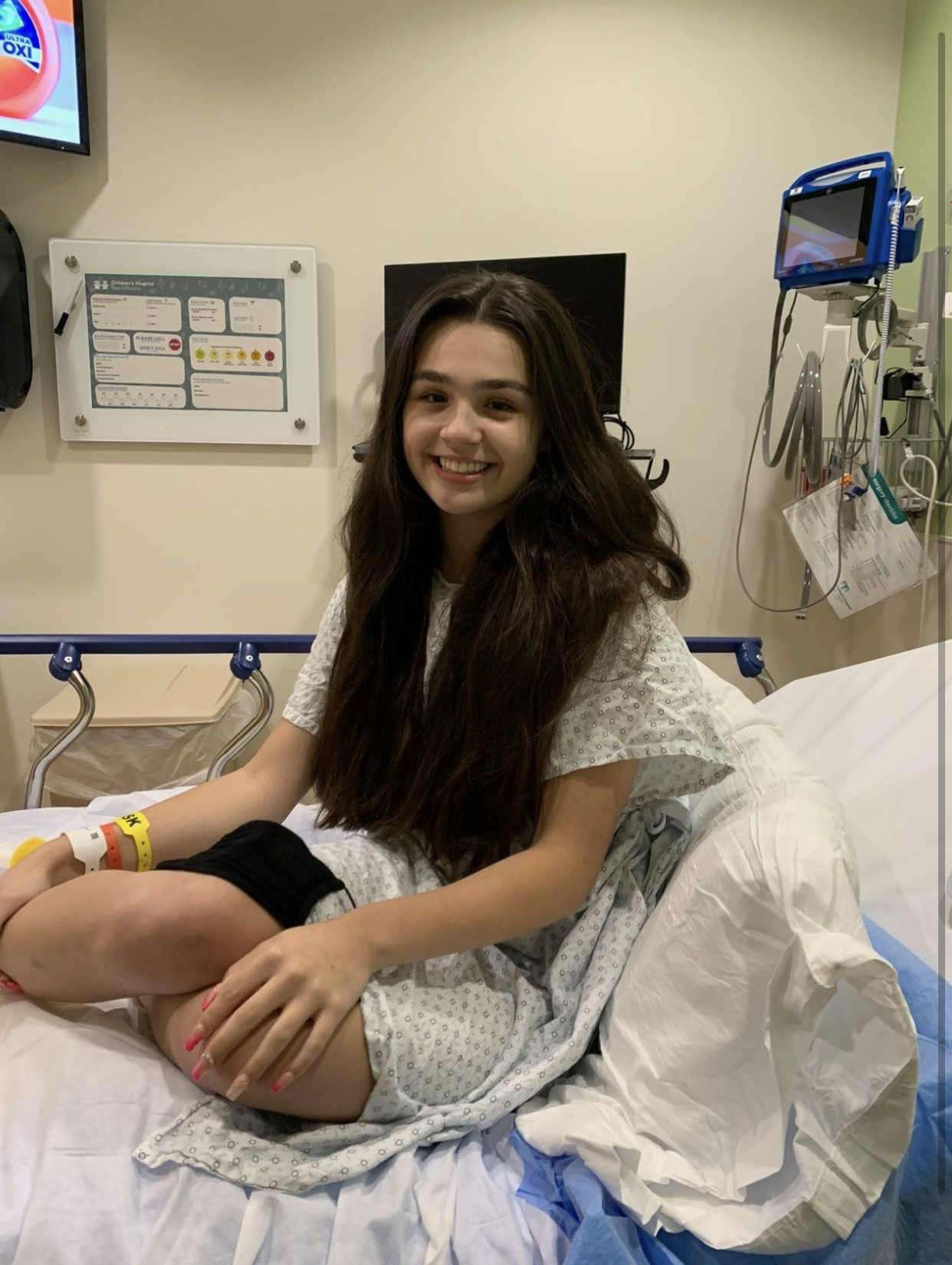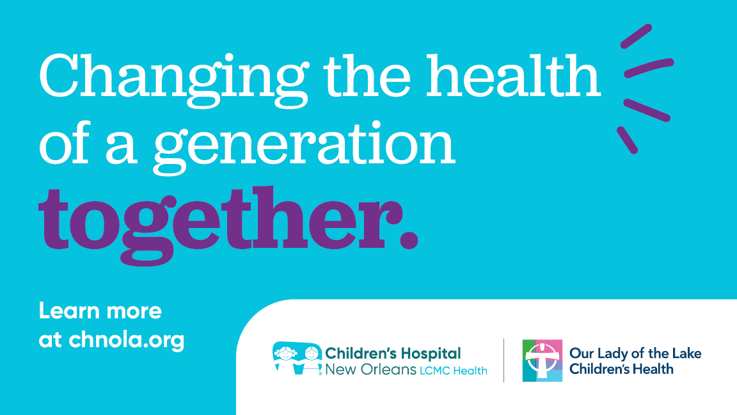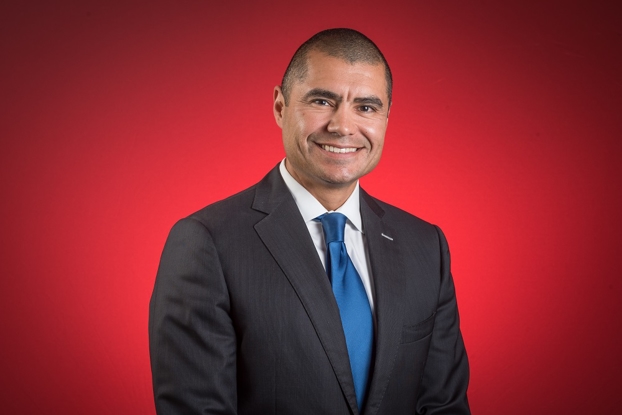Mia’s story: A teen’s battle with Crohn's disease and the unexpected connection from which she drew strength
- Category: Living Well, Patient Stories, Keep Kids Well
- Posted on:

At 16 years old, Mia was like most teens, focused on friends, fun, and the future. But as her sophomore year of high school came to a close, she suddenly began to develop searing pains in her stomach that she couldn’t explain. She started missing school. “I just got nervous stomach aches,” said Mia, reflecting on what she thought was going on. “But when I started losing the weight – that’s when my mom thought something was wrong.” After several months of trying to fight through the pain, she’d had enough. She knew she needed a professional medical opinion.
At first, doctors weren’t sure what to make of the symptoms. They decided to do a colonoscopy, endoscopy, and an MRI on Mia to get a better sense of what was happening. Around the same time as these tests in 2021, Hurricane Ida bore down on New Orleans, one of the top five strongest hurricanes ever to hit the U.S. mainland. “What was worrying us was that Mia was in so much pain that whole time,” said Mia’s mother, Denise Wright.
Denise received an urgent call from Children’s Hospital of New Orleans. Nurse practitioner, Anna Jones, had reviewed Mia’s test results and brought those results to doctors at the Inflammatory Bowel Disease clinic. She urged Mia to get to the emergency room immediately because the testing revealed Mia had a stricture, which was an abnormal narrowing of her lower intestine. It needed to be addressed before she ended up with a blockage. The official diagnosis: Crohn's disease. Naturally, she began researching Crohn's disease as thoroughly as possible. “I had a breakdown. I was crying because I didn't really know what Crohn's disease was at the time,” Mia said. “That was kind of scary.” Doctors wanted Mia to be admitted into the hospital as soon as possible. The nurse practitioner couldn’t stress the urgency enough. Mia was admitted. It was the nurse’s attention to detail and the quick work of the doctors, including Dr. Elizabeth McDonough and

The first course of treatment was to try Remicade, a drug used to treat moderate and severe cases of Crohn’s. During the course of treatment, she was not allowed to eat. Her only nutrition was several protein drinks per day. At first, she got better, but then started to decline. “It was a struggle every day for her. As a parent, when you see your kid in pain, it's devastating,” said Denise Wright.
Mia was in and out of the hospital with every relapse. She missed a lot of school during her junior year. But, Mia was able to keep up her grades working still from home. She tried to return to school at the beginning of her senior year, but after two months another stricture was discovered. Doctors felt it necessary to give her a nasal gastric feeding tube to ensure she had proper nutrition. With medicines, the condition is now mostly controlled. Despite all this, she was able to not only complete all her classes online, but she is graduating on time and has been named valedictorian of her high school class.

Mia is attending the University of New Orleans in the fall, on an academic scholarship. She plans to major in Biology and is on the pre-med track. She hopes to go to medical school and become a doctor. Her reasons for wanting to become a doctor have as much to do with her sister’s medical journey as her own. Mia’s sister has Type I diabetes. “Taking care of her I guess helped me realize that I would be good at taking care of other people,” Mia said. She admits that her journey with Crohn's disease would make her a unique candidate to become a G.I. doctor. “Just because I would be able to relate to so many people,” she explains.
That’s exactly what happened to her: A doctor from the IBD clinic at Children’s Hospital of New Orleans,



